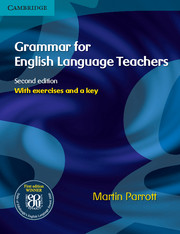Summary
Key considerations
Every time we use a noun we have to decide whether or not to use an article, and if we decide that an article is necessary, we then have to decide which one. We base these choices on a complex interaction of factors including meaning, shared knowledge, context and whether the noun is singular, plural or uncountable.
In many cases, however, fixed expressions and idioms require us to use a particular article (or not to use an article at all), apparently contradicting these ‘basic rules’. Knowing these expressions is a significant factor in using articles correctly.
In helping learners to understand and use articles (particularly if their first language is a non-European language and does not have a broadly equivalent article system), we need to focus their attention constantly on how articles are used in texts they read, beginning with the most accessible and generalisable principles. There is little point in correcting mistakes and giving learners practice exercises and activities until they have developed a good awareness of how we use articles.
What are articles?
What do they do?
Like quantifiers, articles belong to the wider class of ‘determiner’, words or phrases that come at the beginning of a noun phrase and signal whether the information is new or familiar, or which tell us something about quantity. We deal with articles separately here because this is how they are normally taught in course materials.
What do they look like?
The articles are:
• indefinite article: a and an.
• definite article: the.
We can think of a and an not as two words but as two forms of one word. This is because fixed pronunciation rules determine our choice between them.
The term ‘zero article’ is sometimes used for instances where we leave articles out (see [] on the following pages).
Idioms and other fixed expressions
In a lot of idiomatic expressions articles are used or left out for no apparent reason other than that they belong or don’t belong in the expression. Learners need to learn these like items of vocabulary, and have to remember the whole phrase, ignoring general rules or sub-rules (see below).
- Type
- Chapter
- Information
- Grammar for English Language Teachers , pp. 25 - 35Publisher: Cambridge University PressPrint publication year: 2010



